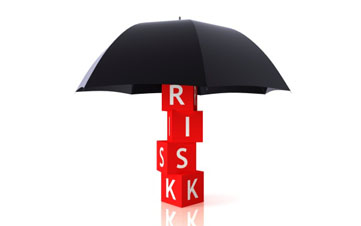10 Factors That Can Raise Your Insurance Premiums
Actuaries at insurance companies spend their entire careers looking for tiny statistical nuances that can predict the likelihood that someone will file a claim -- and that can justify charging higher premiums.


Profit and prosper with the best of Kiplinger's advice on investing, taxes, retirement, personal finance and much more. Delivered daily. Enter your email in the box and click Sign Me Up.
You are now subscribed
Your newsletter sign-up was successful
Want to add more newsletters?

Delivered daily
Kiplinger Today
Profit and prosper with the best of Kiplinger's advice on investing, taxes, retirement, personal finance and much more delivered daily. Smart money moves start here.

Sent five days a week
Kiplinger A Step Ahead
Get practical help to make better financial decisions in your everyday life, from spending to savings on top deals.

Delivered daily
Kiplinger Closing Bell
Get today's biggest financial and investing headlines delivered to your inbox every day the U.S. stock market is open.

Sent twice a week
Kiplinger Adviser Intel
Financial pros across the country share best practices and fresh tactics to preserve and grow your wealth.

Delivered weekly
Kiplinger Tax Tips
Trim your federal and state tax bills with practical tax-planning and tax-cutting strategies.

Sent twice a week
Kiplinger Retirement Tips
Your twice-a-week guide to planning and enjoying a financially secure and richly rewarding retirement

Sent bimonthly.
Kiplinger Adviser Angle
Insights for advisers, wealth managers and other financial professionals.

Sent twice a week
Kiplinger Investing Weekly
Your twice-a-week roundup of promising stocks, funds, companies and industries you should consider, ones you should avoid, and why.

Sent weekly for six weeks
Kiplinger Invest for Retirement
Your step-by-step six-part series on how to invest for retirement, from devising a successful strategy to exactly which investments to choose.
Actuaries at insurance companies spend their entire careers looking for tiny statistical nuances that can predict the likelihood that someone will file a claim -- and that can justify charging higher premiums. Some of the criteria are obvious, such as your driving record for car insurance or your medical history for life and health insurance. But some are surprising. Here are ten unexpected rate boosters. Each insurer has its own rules, so it’s important to shop around before buying.

Your Credit Score
Auto-insurance companies have found that people with low credit scores are more likely than those with high scores to get into accidents, so they charge them more when they can. That’s another good reason to pay close attention to your credit score. (A few states, such as California, don’t permit insurers to use credit scores when setting rates.)

Your Home's Claims History
Insurers share information on homeowners claims for up to seven years through the Comprehensive Loss Underwriting Exchange (CLUE). When you apply for insurance, the company looks at the claims history for your home, even for the time before you lived there. If the house has a history of water-damage claims, for example, it may be more likely to have future problems—and insurers will boost your rate. You can check a house’s CLUE report either before or after you buy it.

Your Car's Horsepower
You’d expect a Porsche Carrera to cost more to insure than a Toyota Camry. But if you buy a six-cylinder Camry instead of the four-cylinder model, it is usually more expensive to insure. In general, a four-cylinder car with moderate horsepower is less costly to insure than a six- or eight-cylinder car. You can get a rough estimate of annual insurance costs for more than a thousand vehicles with our new car rankings tool.

Your Driving Record
- Your record of moving violations can affect your rates for life and health insurance in addition to car insurance. Life insurers are worried about a higher risk of auto fatalities. More than two moving violations in the past three years is a fairly typical cutoff for the best rates, says Byron Udell, CEO of AccuQuote.com. Some insurers permit three moving violations, but others allow only one. And some health insurers will reject you if you’ve had a DUI within the past three or five years, says Keith Mendonsa, of eHealthInsurance.com.

Your Colleagues
If you have health insurance through work, the rates are based on the average risk of the group of employees. And the group’s health and age can make a big difference, especially for small companies (this will change in 2014 because of the new health care law). If your colleagues tend to be older and prone to illness -- and submit a lot of claims -- your health insurance premiums will generally be higher than they’d be if you worked for a start-up filled with twentysomethings. If you’re a healthy young person surrounded by preretirees with health ailments, you may be able to find a better deal on your own with an individual policy, whose rates are based on your own age and health. You can get price quotes for individual policies at eHealthInsurance.com and a list of all policies in your area at HealthCare.gov.

Your Weight
Obesity causes all kinds of medical issues that could shorten your life. And some life insurers have tightened their requirements for the best rates. The rules -- and base rates -- can vary a lot by insurer. But you may be ineligible for the lowest premiums if you’re 6 feet tall and weigh more than 205 lbs (with a body mass index of more than 27), says Byron Udell, CEO of AccuQuote.com.
- Your height, weight and body mass index can also make a big difference in your health insurance rates (this will change in 2014). A study by eHealthInsurance.com found that someone with a body mass index of 30 or above pays 22% more than someone with a BMI of 25. If you’ve recently lost weight, you may not get credit for your slimmer body until you’ve kept the pounds off for at least a year.

Your Education and Job
Auto insurers found a correlation between education and claims, with fewer claims from people with higher education levels. Each level of education you’ve completed may help lower your rate a bit, says Robert Hunter, director of insurance at the Consumer Federation of America and former Texas insurance commissioner.
Your job can also earn you a lower car insurance rate. Some companies offer lawyers and executives the best rates, and blue-collar workers the worst. Teachers often get a discount, too.


Your Zip Code
CarInsurance.com studied cost differences by zip code and discovered that a 40-year-old man with a clean driving record and a 2012 Honda Accord would pay an average of $730 per year if he lived in Bullhead City, Ariz. (the least-expensive town in its study). But that same person with the same car would pay $1,280 if he moved just a few miles, across the Colorado River, to Laughlin, Nev. “The difference by zip code is usually hundreds of dollars, if not thousands,” says Des Toups, managing editor of CarInsurance.com. It’s all based on the insurance claims in your area and state laws that affect coverage and competition.

Your Hobbies
If you skydive, hang glide, rodeo ride or race cars, boats or motorcycles, don’t expect to get the lowest life insurance rates. Insurers may ask you a lot of questions about your hobbies when setting rates. For example, some types of scuba diving are okay, but others -- such as deep dives, cave diving or diving without PADI (Professional Association of Diving Instructors) certification -- can knock you out of the best-rate level, says Udell. Plans for foreign travel to risky areas -- including obvious hot spots such as Afghanistan, and less obvious ones such as Monterrey, Mexico -- can also knock you out of the best-rate category, he adds.

Profit and prosper with the best of Kiplinger's advice on investing, taxes, retirement, personal finance and much more. Delivered daily. Enter your email in the box and click Sign Me Up.

As the "Ask Kim" columnist for Kiplinger's Personal Finance, Lankford receives hundreds of personal finance questions from readers every month. She is the author of Rescue Your Financial Life (McGraw-Hill, 2003), The Insurance Maze: How You Can Save Money on Insurance -- and Still Get the Coverage You Need (Kaplan, 2006), Kiplinger's Ask Kim for Money Smart Solutions (Kaplan, 2007) and The Kiplinger/BBB Personal Finance Guide for Military Families. She is frequently featured as a financial expert on television and radio, including NBC's Today Show, CNN, CNBC and National Public Radio.
-
 The New Reality for Entertainment
The New Reality for EntertainmentThe Kiplinger Letter The entertainment industry is shifting as movie and TV companies face fierce competition, fight for attention and cope with artificial intelligence.
-
 Stocks Sink With Alphabet, Bitcoin: Stock Market Today
Stocks Sink With Alphabet, Bitcoin: Stock Market TodayA dismal round of jobs data did little to lift sentiment on Thursday.
-
 Betting on Super Bowl 2026? New IRS Tax Changes Could Cost You
Betting on Super Bowl 2026? New IRS Tax Changes Could Cost YouTaxable Income When Super Bowl LX hype fades, some fans may be surprised to learn that sports betting tax rules have shifted.
-
 What to Do With Your Tax Refund: 6 Ways to Bring Growth
What to Do With Your Tax Refund: 6 Ways to Bring GrowthUse your 2024 tax refund to boost short-term or long-term financial goals by putting it in one of these six places.
-
 What Does Medicare Not Cover? Eight Things You Should Know
What Does Medicare Not Cover? Eight Things You Should KnowMedicare Part A and Part B leave gaps in your healthcare coverage. But Medicare Advantage has problems, too.
-
 15 Reasons You'll Regret an RV in Retirement
15 Reasons You'll Regret an RV in RetirementMaking Your Money Last Here's why you might regret an RV in retirement. RV-savvy retirees talk about the downsides of spending retirement in a motorhome, travel trailer, fifth wheel, or other recreational vehicle.
-
 The Six Best Places to Retire in New England
The Six Best Places to Retire in New Englandplaces to live Thinking about a move to New England for retirement? Here are the best places to land for quality of life, affordability and other criteria.
-
 The 10 Cheapest Countries to Visit
The 10 Cheapest Countries to VisitWe find the 10 cheapest countries to visit around the world. Forget inflation and set your sights on your next vacation.
-
 15 Ways to Prepare Your Home for Winter
15 Ways to Prepare Your Home for Winterhome There are many ways to prepare your home for winter, which will help keep you safe and warm and save on housing and utility costs.
-
 Six Steps to Get Lower Car Insurance Rates
Six Steps to Get Lower Car Insurance Ratesinsurance Shopping around for auto insurance may not be your idea of fun, but comparing prices for a new policy every few years — or even more often — can pay off big.
-
 How to Increase Credit Scores — Fast
How to Increase Credit Scores — FastHow to increase credit scores quickly, starting with paying down your credit card debt.
